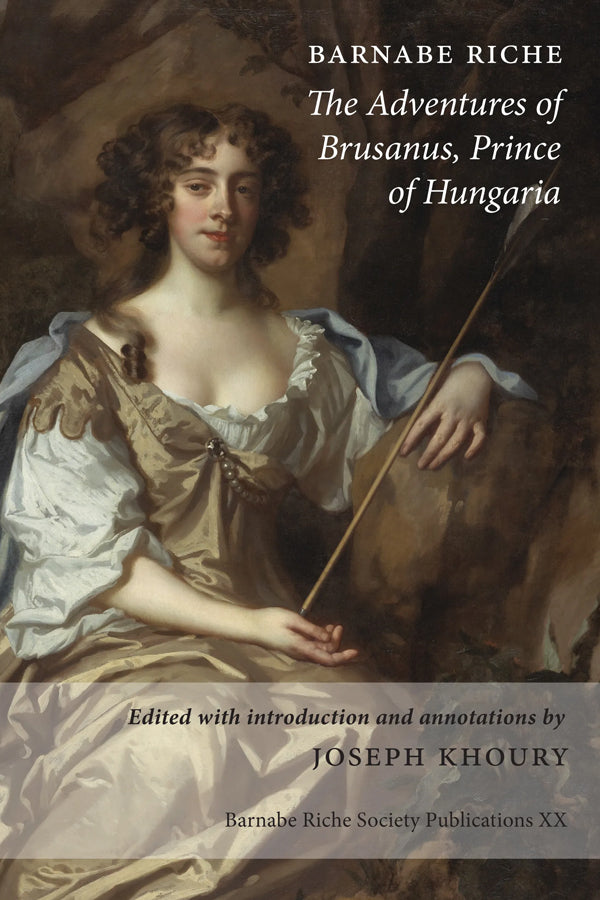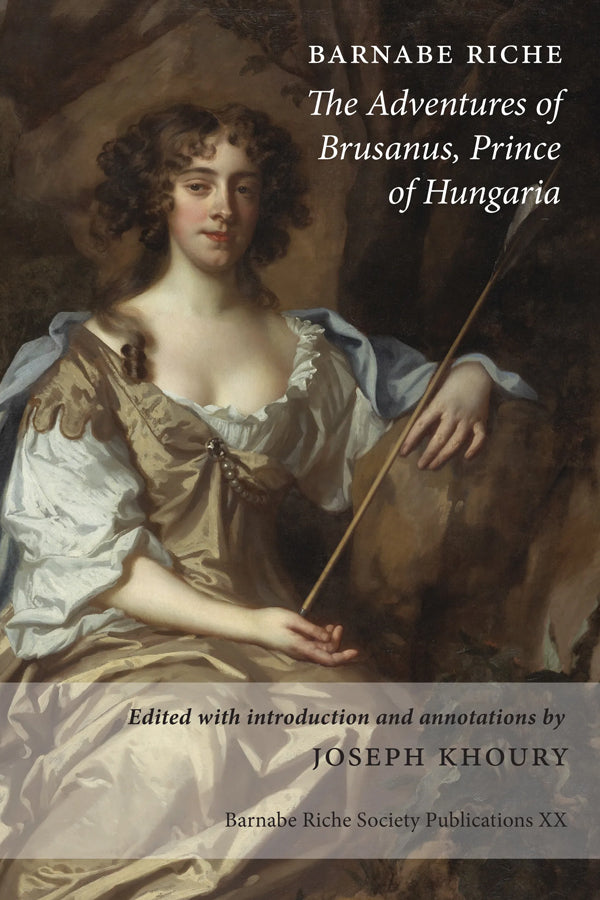Barnabe Riche, The Adventures of Brusanus, Prince of Hungaria
Edited with introduction and annotations by Joseph Khoury - BR20
Overview
Long ignored by scholars, Barnabe Riche’s The Adventures of Brusanus (1592) is an innovative experiment in the prose fiction of the late Elizabethan period. It is an adventure story, a romance, an example of a mirror-of-a-prince text, and a debate about the nature of women à la querelle des femmes. It is also a tale about love and friendship. Above all, it is an animated pastiche that both uses and alters the various styles of writing in vogue at the time, including Euphuism and the Medieval chivalric romance. The wide-ranging introduction examines the thematic complexity of the work, the influence it had – on Shakespeare in particular—and Riche’s interaction with other fiction writers, especially Greene, Sidney, and Lyly. This critical edition also explores Riche’s clever allusions to, and thorough knowledge of, philosophical and political treatises, especially those of Antonio de Guevara and William Baldwin. Fundamentally, Brusanus is a good story and a representative model of Renaissance fiction that engages deeply with the political, social, and ideological structures of its time.
Joseph Khoury is Associate Professor of English at St. Francis Xavier University in Antigonish, Nova Scotia. He has varied literary and philosophical interests, teaches in a humanities program, & specializes in political philosophy, Machiavelli, Marlowe, Shakespeare, and the contemporary Arabic novel.
383 pp.
ISBN: 978-0-7727-2144-0 softcover
Published: 2014
Contents
Preface
Introduction
I. A Brief Biography
II. The Writer
III. The Adventures of Brusanus
The Date of Brusanus
The Genres and Forms of Brusanus
IV. Euphuism
Euphuistic Style
Euphuistic Content
V. Euphuism Revised
VI. The Art of Imitation: Robert Greene
VII. Sidney's Arcadia and Plotting
VIII. Medieval Heroism
IX. The Elizabethan Romance
X. The Readers of Romance
XI. Speculum Principis: The Education of a Prince
XII. Caustic Humour
XIII. Riche and Shakespeare
XIV. Conclusion
Appendices
Appendix A: Differences in the Two Issues of Brusanus
Appendix B: Samples of Borrowing from Greene
Works Cites or Consulted
The Adventures of Brusanus Prince of Hungaria
Reviews
Renaissance and Reformation, 38.3 (Summer 2015). pp 222-224. Reviewed by Stephen Guy-Bray.
Couldn't load pickup availability


